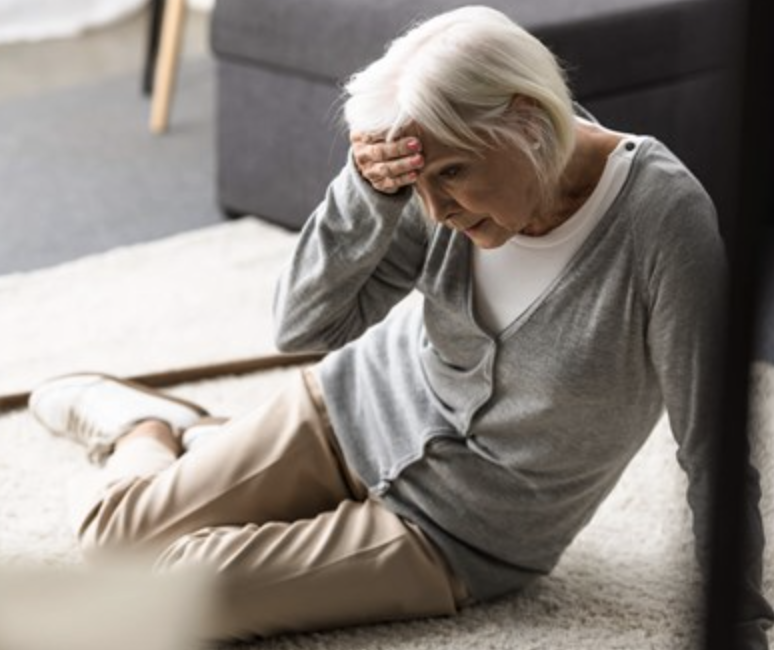Risk Reduction: How To Lessen The Likelihood Of Falling
July 27, 2022

None of us needs a reminder of how prevalent falls can be as you get on in years, or how fearful you can become if you’ve had a bad fall. As you’ve previously read, there are myriad reasons why a person can fall. Whether due to balance problems, leg weakness, medication interactions, or dehydration, many factors influence your risk of falling and your ability to stay upright, act quickly if you feel unsteady, and avoid injury. As a reminder, the statistics are concerning: One in four older adults falls every year and if you’ve fallen once, there’s a 50% chance you will fall again. In fact, since the pandemic, there’s been a 20% increase in the number of falls among older adults, attributable to less physical activity and sleep, more anxiety, and other physical and mental health factors.
Beyond issues of physical strength and balance, it’s essential to understand how sensory deficits in older adults can heighten your risk of falling. For example, did you know that having impaired vision more than doubles the risk that you’ll have a fall? Experts warn that balance is significantly controlled by vision, so when you lose some of your vision, you lose critical information your brain and body need to stay balanced. How can you counter the negative effect of vision problems to lessen your risk of falling? Beyond the obvious efforts to eliminate trip hazards and illuminate dark areas inside and outside your home, experts recommend rethinking multifocal glasses when you are outside. In fact, there’s a study out of England that found that single lens distance glasses (as opposed to bifocals or trifocals) were associated with 40% fewer falls outdoors. To read more about the connection between vision impairment and the risk of falling, adjust your glasses and look here.
Hearing loss also appears to be associated with the risk of falling. Researchers at the UT Southwestern Medical Center report that there’s a close link between the 1 in 3 individuals ages 65-74 who have hearing loss and the 1 in 4 Americans over age 65 who fall every year. They report that mild degrees of hearing loss can cause up to a three-fold increase in your risk of falling. While it’s unclear what causes this association, they conjecture that hearing loss increases the burden on your brain to understand sounds, so that you have fewer cognitive resources to help with balance and stability. On the bright side, there does seem to be a connection between wearing a hearing device and improving your performance on balance-related tasks.
Finally, your fear of falling itself can leave you at a higher risk. “Fear of falling” can be defined as excessive concern about losing your stability, falling to the ground, and causing yourself injury. While most falls do not result in serious injury, such a fear of falling may lead an older adult to be overly cautious, less active, and even cause you to shift your weight incorrectly if you do fall, thereby leading to injury. In fact, the anxiety attributable to the fear of falling could be self-fulfilling, as this fear may limit your activities to the point where you become weaker and less steady as a result. How to counter this fear? Beyond the obvious efforts to exercise, strengthen your legs, work on your balance, improve your vision and perhaps even use adaptive equipment (like a cane or walker) for additional stability, you may also need psychological support to boost your confidence, lessen your anxiety and learn to trust your body again. You’ll need to find that sweet spot between justifiable concern and excessive worry so that you are aware of your limits but not excessively restrictive of your activities. To learn about some confidence-building measures, take a few baby steps and click here.







